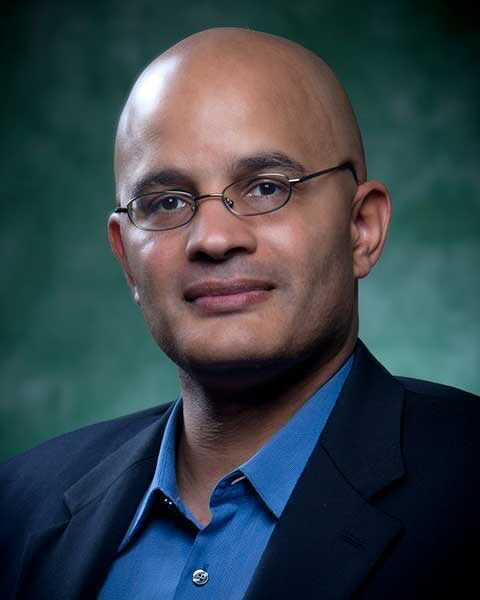This past month Leo Wilton, a professor of human development, was named to the American Psychological Association’s (APA) 2021 Presidential Task Force on Psychology and Health Equity.
According to Jennifer F. Kelly, president of the APA, the task force is meant to address existing issues in the U.S. health care system, which is one of the biggest contributors to inequality in the country.
“I am launching a Presidential Task Force on Psychology and Health Equity to take on this critical issue, which will produce a comprehensive report articulating a vision for the role of psychology in advancing health equity,” Kelly wrote in an email. “The task force will gather input from health care experts and the available scientific literature in order to make recommendations for psychological science, education and training, practice, public policy and legislative advocacy.”
Wilton’s career in psychology has centered around the issue of societal inequality and its effect on mental as well as physical health.
“[My research is] situated in the importance of cultivating an innovative holistic understanding of the life-contexts of historically underserved communities as well as a commitment to addressing multitiered barriers, including structural racism, to optimal health,” Wilton wrote in an email.
Wilton’s ongoing research on how the HIV epidemic disproportionately affects historically marginalized communities is one of his largest contributions to the field of psychology.
“My scholarly research on the HIV epidemic focuses on the intersectionality of race, gender and sexuality, as situated in macro- and micro-level inequalities in Black communities,” Wilton wrote. “The overall objective of my scholarly research has been to examine socio-structural and -cultural factors that provide the basis for the development of culturally congruent HIV prevention and care interventions in Black communities.”
At a national level, Wilton has served on the National Institutes of Health Director’s Council of Public Representatives and has also brought his research to the White House.
“I was invited as part of a select group of nationally recognized experts to participate in a research meeting at the White House under [former] President Barack Obama that addressed the state of the HIV epidemic among Black men in the United States,” Wilton wrote. “The objective of the research meeting was to develop awareness about the HIV epidemic pertaining to Black men in the United States, critically examine government and community responses to the HIV epidemic and promote dialogue among a variety of constituencies in Black communities.”
At Binghamton University, Wilton has taught classes on the psychology of racism and Black child and adolescent development. Some of his students have said they consider him not only a professor but a mentor.
Breanna Acevdeo, a junior double-majoring in integrative neuroscience and human development, has taken multiple classes with Wilton.
“As a mentor, [Wilton] has gone above and beyond to support me and other students,” Acevedo wrote in an email. “He has created an environment in the classroom where he feels like a friend. He pushes us to think deeply about the multilevel frameworks of racial, social, historical and educational inequities, have the necessary conversations about our positionality within systems of oppression and how we can begin to deconstruct and find solutions to our experiences as students from a wide range of multicultural backgrounds.”
According to Acevedo, achieving health equity would be an important step for the United States, and Wilton’s appointment to the team allows for marginalized voices to be heard.
“To even begin to work toward achieving health equity would mean dismantling the American medical system that, without the horrible violence that historically targeted marginalized populations, especially Black people, would not exist at the level that it does today,” Acevedo wrote. “This would also require the medical field to be reconstructed and reformed within its entirety to include everyone, not just white people. Health equity would provide every individual, regardless of race, socioeconomic status or identity, with accessible resources to have their health taken care of.”
Laura Bronstein, dean of the College of Community and Public Affairs (CCPA), said the task force’s mission was especially important given the COVID-19 pandemic, and Wilton’s appointment reflects the vision of CCPA.
“Given the global pandemic and its disproportionate impact on the [Black, Indigenous and people of color (BIPOC)] population, the issue of health disparities has become a major social justice concern needing immediate and focused attention,” Bronstein wrote in an email. “As a college committed to examining and alleviating disparities, CCPA is extremely proud of [Wilton’s] appointment to APA’s prestigious Presidential Task Force on Psychology and Health Equity.”
Elisse Howard, a junior double-majoring in psychology and human development, has also taken multiple classes with Wilton and said Wilton’s appointment will help achieve health equity.
While the effects of this task force may seem distant to some, Howard said health inequality is not only a problem at the national level but at the University itself. According to Howard, achieving health equity would make a difference for students of color on campus.
“Without good health, it is hard to keep up a rigorous education,” Howard wrote in an email. “Mental health on campus can be addressed, and this can finally be the opportunity for the University and especially professors to realize their students are struggling heavily. Students who have financial and environmental hardships that can affect their learning and overall school experience have poorer health not only physically but mentally as well.”



